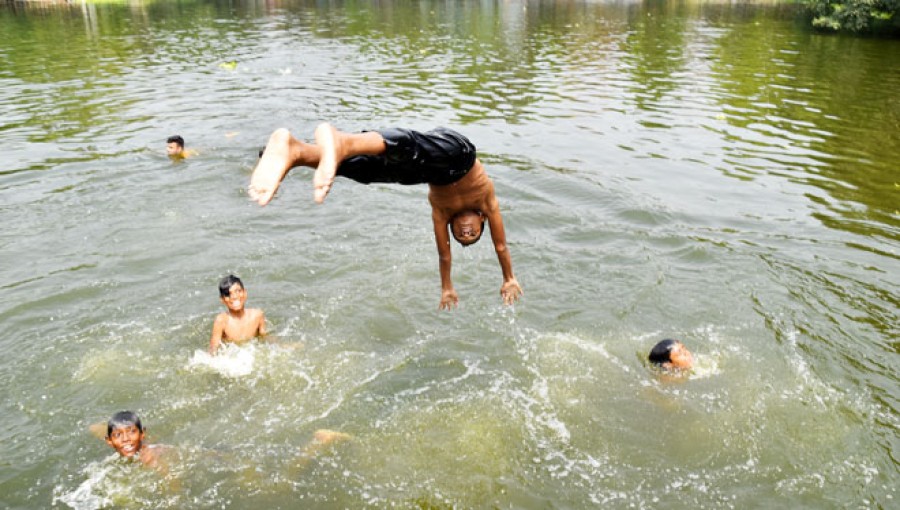
Photo: Voice7 News
Bangladeshi children have "extremely high risk" of being affected by climate change, according to UNICEF 2021 Children's Climate Risk Index (CCRI).
UNICEF is still very worried for the health and safety of children nationwide as a result of the extreme heatwave that is still prevailing there.
Children in Bangladesh face "extremely high risk" of experiencing the effects of climate change, per UNICEF's 2021 Children's Climate Risk Index (CCRI).
In a statement released here on Wednesday, UNICEF Representative in Bangladesh Sheldon Yett stated, "The unusual rise in temperatures poses grave risks, particularly to newborns, infants, and young children who are considered to be an especially vulnerable population to heat-related illnesses such as heat stroke and diarrhoea caused by dehydration."
UNICEF is additionally advising parents to exercise extra caution in keeping their children safe and hydrated, as the Primary and Mass Education Ministry has ordered the closure of all government primary schools nationwide until April 27 due to worries about the effects of rising temperatures on children.
As the effects of climate change grow, children must be protected, and this heatwave's intensity highlights the urgent need for action.
We must put children's and the most vulnerable groups' welfare first when temperatures rise to previously unheard-of heights, the statement said.
The following actions may be taken by frontline workers, parents, families, carers, and local authorities to safeguard children and pregnant women from this heatwave:
Precaution: Make cooler spaces for kids to play or sit in wherever they are staying. At lunchtime and throughout the afternoon, stay indoors as much as possible.
Children should be encouraged to drink lots of water throughout the day and to dress in light, airy clothing.
First Aid: Put the kid or pregnant woman in a cool, shady room with enough ventilation and administer damp cloths or cold water to the body if they exhibit signs of heat stress, such as dizziness, heavy perspiration, nausea, slight fever, nosebleeds, muscular cramps and health rashes in the diaper region.
Give out ORS (Oral Rehydration Salts) or water.
Urgent medical care is necessary for severe heat stress symptoms such seizures, loss of consciousness, high body temperature, fast pulse, fainting, and bewilderment or incapacity to respond.
Be mindful of your neighbours: During heatwaves, pregnant women, elderly people, children with impairments, and vulnerable families are more likely to become ill or pass away. Spend some time visiting your neighbours, paying particular attention to the solitary ones.
End/v7n/sma/dk

Comment: